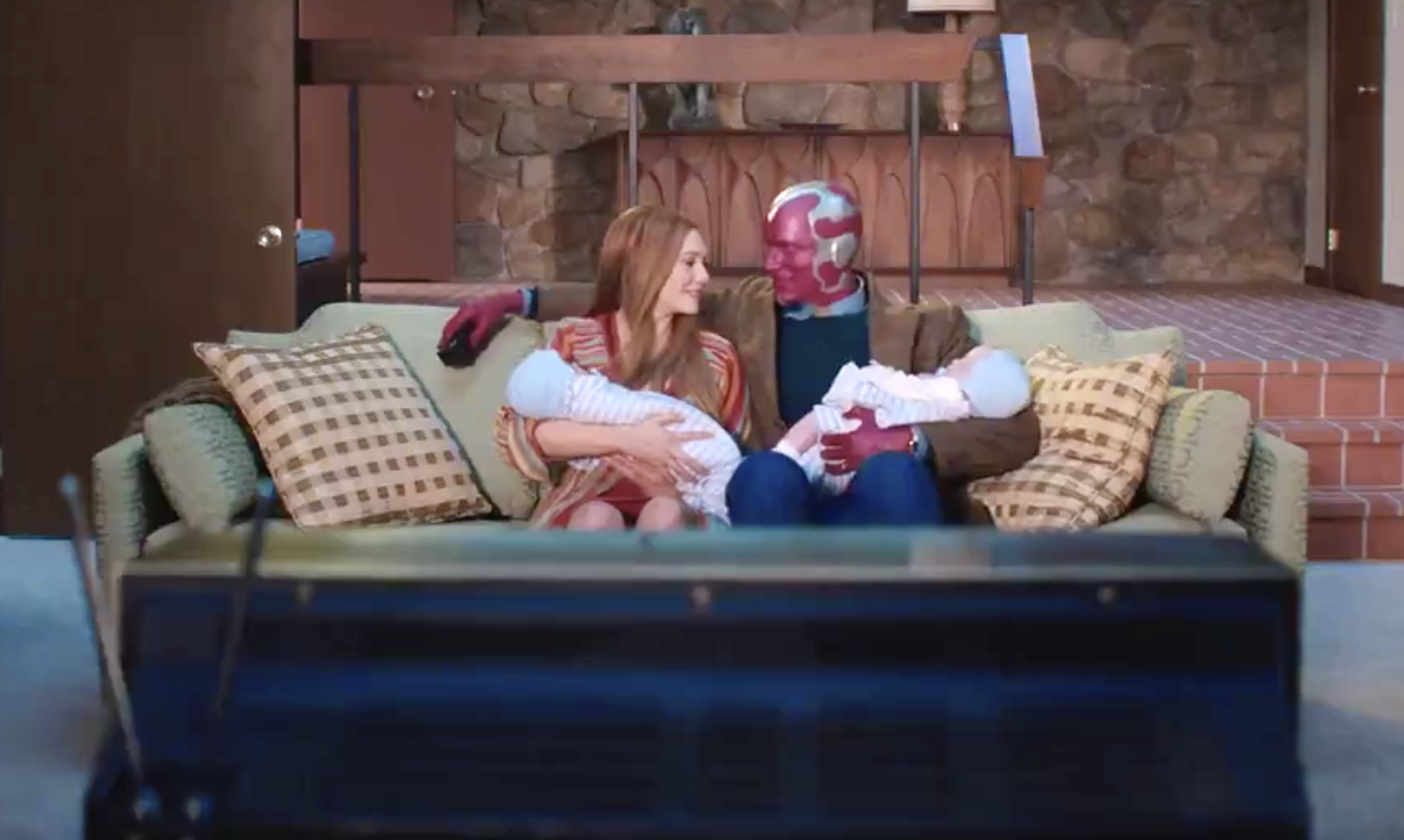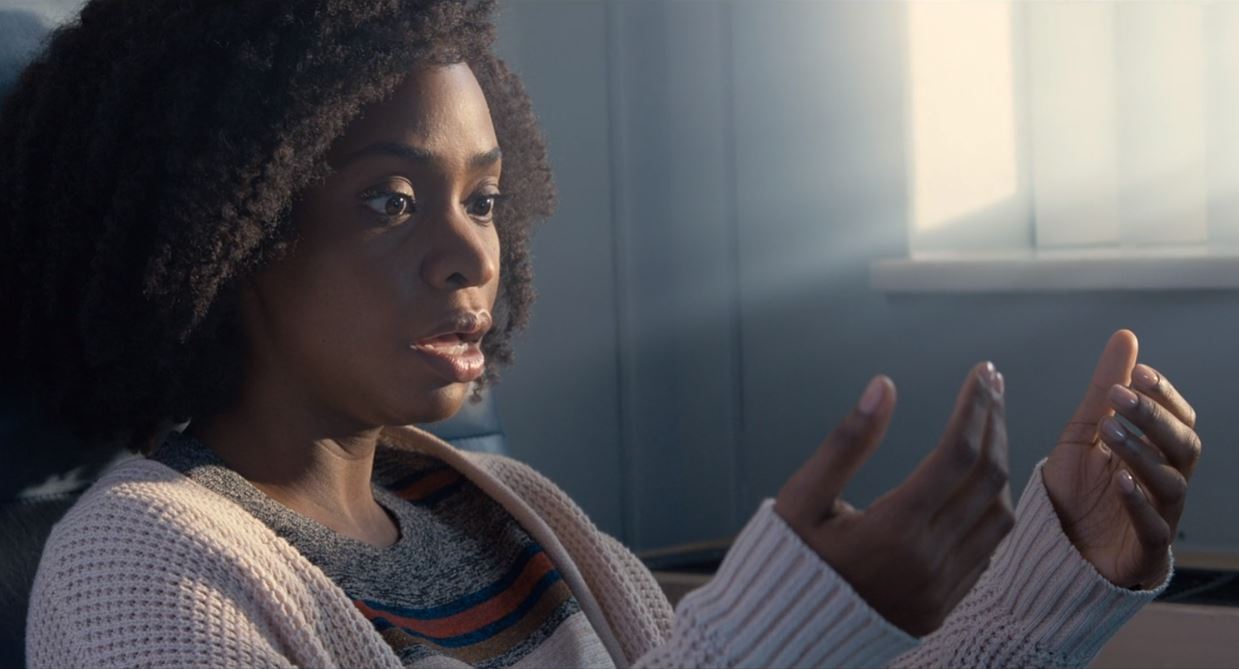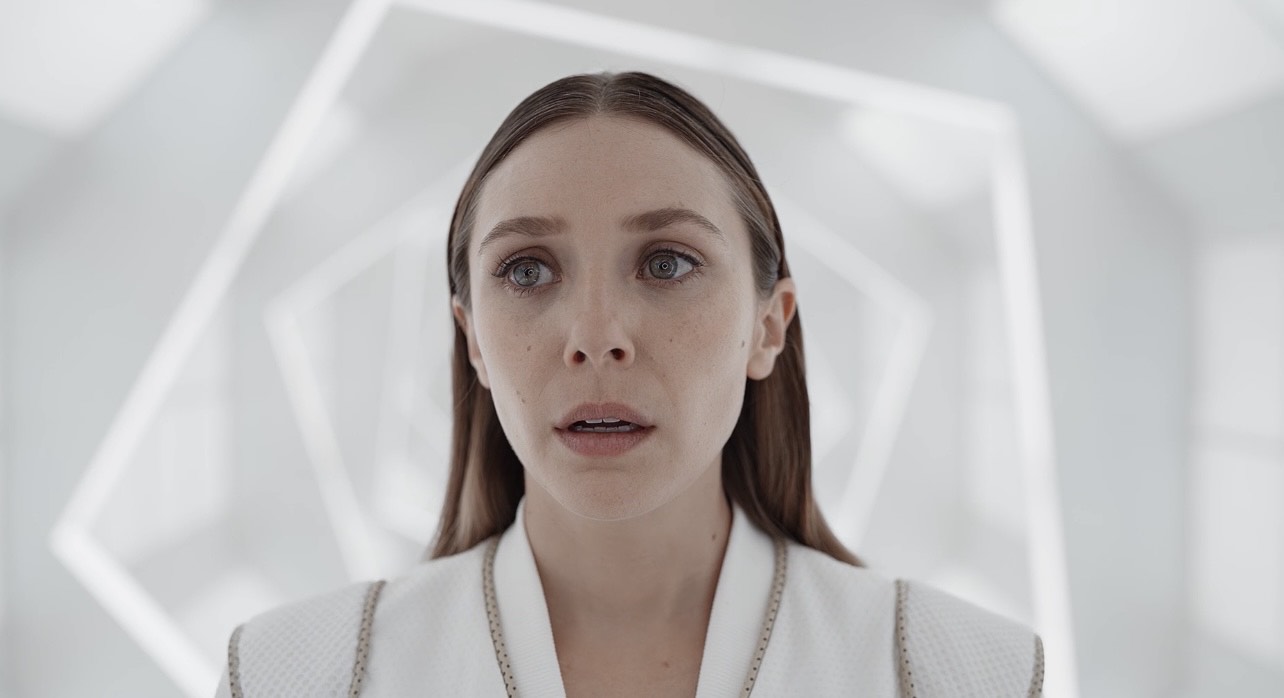How 'WandaVision's sitcom refuge has become the perfect vehicle for Wanda Maximoff's despair
The sitcom set is a refuge for Wanda, but this is not Elizabeth Olsen's first TV foray into profound loss.

The latest updates, reviews and unmissable series to watch and more!
You are now subscribed
Your newsletter sign-up was successful
Want to add more newsletters?

ONCE A WEEK
What to Watch
Get all the latest TV news and movie reviews, streaming recommendations and exclusive interviews sent directly to your inbox each week in a newsletter put together by our experts just for you.

ONCE A WEEK
What to Watch Soapbox
Sign up to our new soap newsletter to get all the latest news, spoilers and gossip from the biggest US soaps sent straight to your inbox… so you never miss a moment of the drama!
This post contains spoilers for WandaVision.
Traditionally, sitcoms are a safe environment in which most conflicts have been solved by the end of the 30-minute runtime. A respite from the real world, the worst that can happen is a break-up (don’t worry, the couple will eventually get back together) and an IRL death can be fixed by recasting a character. This is an oversimplification, of course, as some tragic events are far bigger than introducing a new actor (see, John Ritter in 8 Simple Rules) and while 9/11 was only referenced on Joey and Chandler’s Etch A Sketch in a tribute to the New York fire department on Friends, shows like Superstore are incorporating the current global pandemic into the narrative. Suffice to say, living in a staged TV comedy world is a solid strategy to filter out grief if you possess Wanda Maximoff’s (Elizabeth Olsen) powers. Lots of people die in superhero movies — including a lot of nameless victims — and this exploration of personal loss is one of WandaVision’s strengths. Oscillating between the fixed smile illusion and defending her home with intensity, Olsen delivers an acting masterclass that goes beyond mimicking classic TV shows.
This is not the first time the actress has played a figure struggling to keep up appearances while dealing with a personal tragedy. Debuting in 2018, Olsen headlined one of Mark Zuckerberg’s first forays into scripted television in the Facebook Watch series Sorry For Your Loss. Don’t let the streaming platform color your opinion, because this hidden gem is a meditation on death that cuts to the emotional core. Cycling through the five stages of grief, Leigh’s (Olsen) discoveries about her husband in the present run parallel to scenes from their past. She briefly takes refuge in an out-of-this-world comic book that he had dreams of publishing and barely keeps it together in the real-world. Unlike Wanda, she doesn’t have mind control powers but there is an element of faking feeling fine. I don’t want to reveal too many spoilers because both seasons are still available on Facebook Watch and the unraveling story is not as maudlin as it might sound. Rather, Olsen and the strong supporting cast — including Janet McTeer, Kelly Marie Tran, Jovan Adepo, and Mamoudou Athie — paint a complex canvas that captures the messiness of living (and dying).
Leigh’s attempts to see her dead husband Matt (Athie) aren’t as extreme as Wanda’s, but she does resort to psychedelic drugs to induce a meeting on another plane. He has stopped appearing in her dreams and this Season 2 solution leads to a brief sequence of her 'hanging out' with Matt in outer space. Grounded in reality, these flights of fancy highlight how Sorry For Your Loss is an ideal companion to WandaVision’s sitcom refuge. Falling into a fantasy scenario as a respite from the heartache is a very human response. Swiss-American psychiatrist Elisabeth Kübler-Ross’s five stages of grief model was originally conceived in 1969 from observations made in her work focusing on terminally ill patients. It has since become shorthand for dealing with loss whether a breakup or death — as with anything relating to the mind there are disputes regarding the accuracy — and Wanda is stuck in the first stage (denial) with a dash of the second (anger). Meanwhile, Leigh’s emotions swing between highs and lows compounded by other complicated factors (again, I don’t want to reveal too much).
Given Wanda’s personal history of losing everyone close, it is hardly surprising that Vision’s (Paul Bettany) demise has caused a break from reality. There are questions of how much control Wanda has over her choice to steal Vision’s body from the secure SWORD facility — and whether this was a rescue mission. Even without answers and the bubbling theories regarding a potential villain in the SWORD midst, part of Wanda is actively engaging with this make-believe world. There is also a question of how much of it is real and Monica’s (Teyonah Parris) first-hand account proves that aspects such as the children are not figments of Wanda’s perfectly constructed sitcom fantasy land. “There was this feeling keeping me down. This hopeless feeling. Like drowning. It was grief,” Monica explains after her experience. Images of Monica’s mother and Wanda’s pain are cut together reflecting the agent’s deep empathy for Wanda. While others frame the Avenger as the “principal victimizer,” Monica views her actions through a relatable lens. After all, Maria Rambeau (Lashana Lynch) has only been dead for three weeks in Monica’s world.

“There are rules in life,” Wanda tells her heartbroken twins after their dog Sparky dies and sitcoms are also subject to narrative constraints. Bringing someone back from the dead is on this shortlist but television writers are not opposed to storyline subversion and in this case, Wanda is the apparent showrunner of this sitcom. Horror has long taught us that resurrection is not consequence-free and the likelihood of someone returning as if nothing has happened is very slim. Resurrections-gone-wrong is a common trope and even though Vision isn’t a zombie version of his past self, his limited memories mean he hasn't come back whole.
Fear of losing everything (again) is fueling Wanda’s changing mood. Dread was a disquieting rumble in the first three episodes before the big secret was revealed with Monica's expulsion. Paul Bettany is a terrific acting partner as his Vision becomes more lost after Wanda digs her heels in. “I have what I want and no one will ever take it from me again,” she forcefully tells the S.W.O.R.D. squad and at this point, she is willing to do anything to keep her sitcom from cancelation. Olsen’s ability to alter her disposition from terrifying to the sunny ideal of a suburban mom within one scene adds emotional weight that strips back the heightened location.
The latest updates, reviews and unmissable series to watch and more!

The sitcoms Wanda is cosplaying are all family-centric; a theme that plays into a lesson Wanda imparts on her twin sons. “Family is forever,” she mentions in a conversation that references her deceased brother, a brother who returns via a stroke of recasting genius. While it is unclear what Evan Peters’ arrival at the end of Episode 5 means for the wider MCU, this plays into the changing actor sitcom norm — Aaron Taylor-Johnson plays Pietro (aka Quicksilver) in Avengers: Age of Ultron. Wanda claims that she didn’t make this happen, which also calls into question why someone is giving her the pieces to her idyllic life. Unlike Wanda, Leigh attempts to avoid her pain by pretending to be someone she isn’t. In the Season 1 episode “Welcome to Palm Springs,” a weekend getaway that was booked before Matt died becomes a vacation for one. There she meets a handsome stranger also looking to forget. Wanda hides in a fake world featuring her be loved while Leigh constructs a fake persona to take a break from the consuming grief.
WandaVision and Sorry For Your Loss are not only bound by a lead actress capturing this acute pain, rather both shows are an exploration of grief’s deep well. There is unfortunate timeliness to this series because, in the midst of a global pandemic, grief is part of the daily tapestry. Running away to a world based on sitcoms sounds rather tempting, all things considered.
To see how we got to where things start in WandaVision, be sure to watch every Marvel movie in order. (You've got to do it at least once in your life!) And for one of the best ways to do it, check out Disney Plus on Apple TV.
Emma Fraser spends most of her time writing about TV, fashion, and costume design; Dana Scully is the reason she loves a pantsuit. Words can also be found at Vulture, Elle, Primetimer, Collider, Little White Lies, Observer, and Girls on Tops. Emma has a Master’s in Film and Television, started a (defunct) blog that mainly focused on Mad Men in 2010, and has been getting paid to write about TV since 2015. It goes back way further as she got her big start making observations in her diary about My So-Called Life’s Angela Chase (and her style) at 14.



